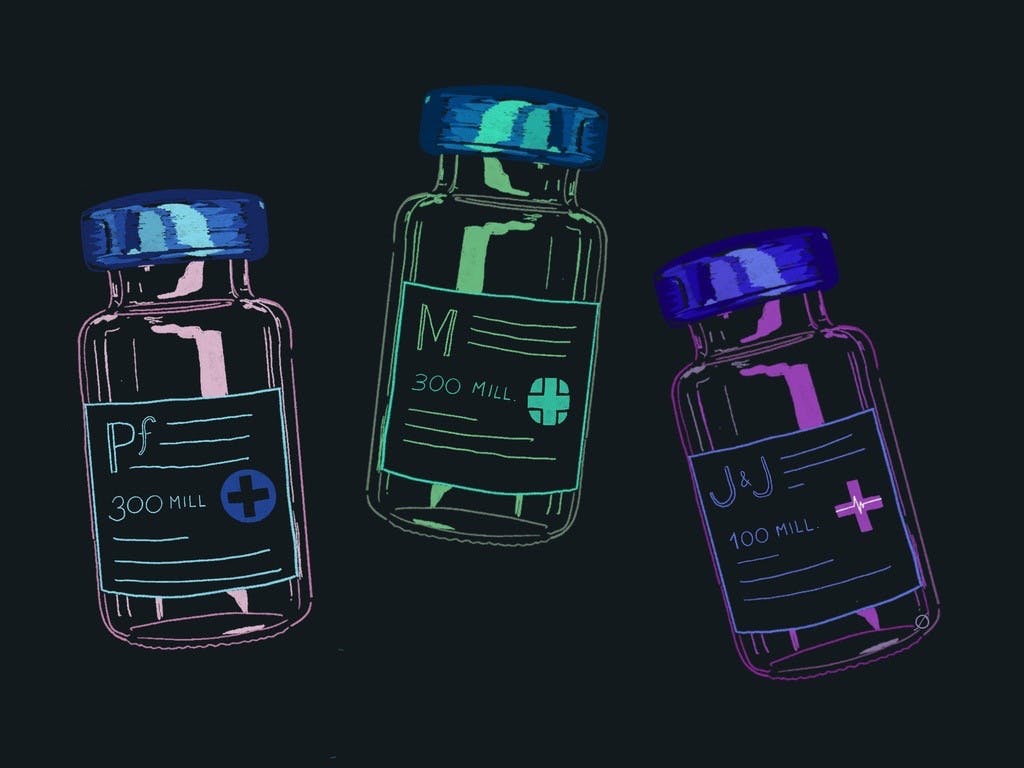The United States has purchased enough doses of the COVID-19 vaccine to vaccinate its entire population two times, while countries in Africa, Asia and Latin America have yet to purchase enough to cover their populations.
Director and Associate Professor in the Michigan State University Center for Bioethics & Social Justice Sean Valles said the possibility of preordering vaccines was going to create an inequitable system.
“Countries that could afford to make preorders of vaccines they said, ‘If and when these become safe and available to use, we want to have first dibs’,” Valles said.
The U.S. and the United Kingdom first purchased the Oxford-AstraZeneca vaccine in May 2020.
“We spent billions of dollars buying in massive bulk…and countries that didn’t have billions of dollars…didn’t have that possibility," Valles said. "They can’t put a down payment on a product that might not ever even come to exist.”
Since May 2020, the U.S. has ordered 300 million doses of Oxford-AstraZeneca, 110 million doses of Novavax, 300 million doses of Pfizer, 300 million doses of Moderna and 100 million Johnson & Johnson.
In total, the United States has purchased 1.2 billion doses of vaccines and is potentially buying 1.3 billion more doses. This amount of vaccine will allow the US to vaccinate 199.5% of its population.
According to the Duke Global Health Innovation Center, the direct deals made by high-income countries mean that a smaller amount of vaccine is available for low-income countries, middle-income countries and for equity-focused partnerships like COVAX, due to manufacturing constraints.
Valles said that low availability will bring a situation where low-income countries must rely on high-income countries to donate cash or doses of vaccine they have already preordered.
The World Economic Forum predicts that this act of "vaccine nationalism," where countries try to get first access to vaccines, could slow the global economic recovery, costing high-income countries $119 billion per year.
Valles has a similar prediction about the global economic system due to the possibility that disease may spread in a part of the world where wealthy economies rely on the production of goods there.
The impact is "radically different" for a country that may have half its population vaccinated compared to a country that has less than one percent of its population vaccinated, Valles said.
High-income countries have purchased over 5.9 billion doses of vaccines, COVAX has purchased over 2.3 billion and low-income countries like the African Union, Haiti, Syria, Somalia and Yemen have purchased about 271 million doses in total.
COVAX is one of three pillars of the Access to COVID-19 Tools, or ACT, Accelerator. It is the only effort to ensure that people in all corners of the world will get access to COVID-19 vaccines once they are available, regardless of their wealth.
Most of the world's population live in COVAX-participating countries, including 92 lower-income countries that will get doses of vaccine to cover 20% of their population without charge, according to Duke Health Global Innovation Center.
Valles said that diseases do not respect national borders.
“If we have access to extra doses and these vaccine factories are able to keep producing, it’s really time to recognize that we’re all part of one world and to share for the common good,” Valles said.
According to the Ingham County Health Department's COVID-19 update, 83.3% of residents have at least received their first dose of vaccine.
“We’ve gotten to this point now where we’re plateauing out with the number of people who are willing to get vaccinated in the United States,” Valles said. “So, we have doses sitting on shelves in the United States and then people who are desperately in need [in low-income countries]."
Support student media!
Please consider donating to The State News and help fund the future of journalism.
Discussion
Share and discuss “The US can vaccinate its population twice, while poor countries wait for vaccine” on social media.







